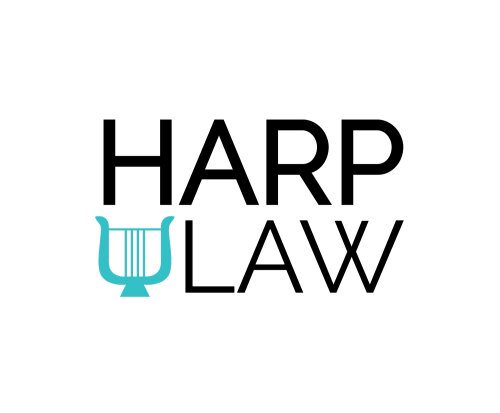Best Sanctions & Export Controls Lawyers in Detroit
Share your needs with us, get contacted by law firms.
Free. Takes 2 min.
List of the best lawyers in Detroit, United States
About Sanctions & Export Controls Law in Detroit, United States
Sanctions and export controls law governs the transfer of goods, technology, software, and services between the United States and foreign countries or individuals. In Detroit, a major hub for manufacturing, automotive, and international trade, these laws are particularly important for businesses and individuals engaged in cross-border transactions. Sanctions are restrictions imposed by the U.S. government on dealings with certain countries, entities, or individuals, usually for foreign policy or national security reasons. Export controls regulate which items or technology can leave U.S. borders, and to whom they can be sent, to prevent proliferation of sensitive technologies or address concerns about end-users.
Why You May Need a Lawyer
Legal assistance is often necessary for navigating the complex field of sanctions and export controls. Businesses in Detroit might need a lawyer if they:
- Plan to export goods, technology, or software from the United States
- Are involved in international transactions with high-risk countries, companies, or individuals
- Need to perform due diligence on suppliers, buyers, or partners to comply with U.S. law
- Face government investigation or enforcement action related to alleged sanctions violations
- Are confused about which export licenses or classifications apply to their products or services
- Wish to voluntarily disclose potential legal violations
- Have assets or property frozen due to sanctions
- Require help interpreting rapidly changing regulations associated with global events
A lawyer can offer guidance, ensure compliance, defend against accusations, and help avoid costly penalties.
Local Laws Overview
In Detroit, as throughout the United States, sanctions and export controls are primarily governed by federal law. Key legal frameworks include the Export Administration Regulations (EAR), International Traffic in Arms Regulations (ITAR), and sanctions administered by the U.S. Department of the Treasury's Office of Foreign Assets Control (OFAC). Local businesses must pay attention to:
- The type of goods and technologies they export
- Destinations and end-users outside the U.S.
- Screening against restricted or banned parties
- Obtaining necessary licenses before exporting specific items
- Recordkeeping and reporting obligations
- Potential overlap with state regulations if handling controlled substances or technologies
Enforcement can involve both criminal and civil penalties. Detroit’s proximity to Canada and the presence of global automotive and manufacturing firms mean that these laws are very relevant for local businesses and employees.
Frequently Asked Questions
What are export controls and how do they affect businesses in Detroit?
Export controls are federal regulations that limit the export of certain goods, technology, and software for reasons of national security or foreign policy. Businesses in Detroit that deal in manufacturing, technology, or international trade must determine if their products are export controlled and obtain proper licenses.
What are economic sanctions?
Economic sanctions are restrictions imposed by the U.S. government on specific countries, sectors, companies, or individuals. They are often used as a tool to address foreign policy or national security threats, and can prohibit trade, finance, or other transactions with designated parties.
Who enforces sanctions and export controls in Detroit?
Primary enforcement agencies include the U.S. Department of Commerce’s Bureau of Industry and Security (BIS), the U.S. Treasury Department’s Office of Foreign Assets Control (OFAC), and the U.S. State Department’s Directorate of Defense Trade Controls (DDTC).
Do I need a special license to export goods from Detroit?
Whether a license is required depends on the item, its destination, intended use, and the end-user. Certain items, especially those with military or dual use, often need licenses before export. Determining license requirements is critical to compliance.
What are the penalties for violating sanctions or export control laws?
Violations can result in civil fines, criminal penalties, loss of export privileges, and reputational harm. Fines can be substantial, and individuals involved may face imprisonment.
How can I check if a business partner is subject to sanctions?
Businesses should routinely screen all parties involved in international transactions against OFAC’s Specially Designated Nationals (SDN) list and other government watchlists to ensure compliance and avoid prohibited dealings.
How often do sanctions and export laws change?
Laws and regulations can change rapidly, often in response to geopolitical events. It’s important to monitor updates and consult legal experts regularly to stay compliant.
Can Detroit-based companies be held liable for violations done abroad?
Yes, U.S. law applies to U.S. persons and companies worldwide. Activities performed outside U.S. borders can still lead to enforcement actions if they violate U.S. sanctions or export control laws.
What industries in Detroit are most affected by export controls?
Automotive manufacturing, technology, software development, aerospace, and defense industries are especially impacted due to the nature of their products and frequent international dealings.
What should I do if I discover a possible violation?
Immediately consult with an experienced sanctions and export controls attorney. Voluntary self-disclosure to government agencies may mitigate penalties, but legal representation is crucial when preparing disclosures or responding to investigations.
Additional Resources
For further information or assistance, consider the following resources:
- U.S. Department of Commerce - Bureau of Industry and Security (BIS): Offers regulatory guidance on controlled exports
- U.S. Department of the Treasury - Office of Foreign Assets Control (OFAC): Publishes sanctions lists and compliance resources
- U.S. Department of State - Directorate of Defense Trade Controls (DDTC): Provides information on defense-related exports
- Detroit Regional Chamber: May offer export assistance and regulatory updates for local businesses
- Michigan Economic Development Corporation (MEDC): Provides export resources and guidance for Michigan businesses
- State Bar of Michigan - International Law Section: Connects individuals with qualified attorneys in this field
Next Steps
If you believe your business may be impacted by sanctions or export controls or if you have specific questions, consider taking the following actions:
- Conduct a preliminary review of your products, services, and business partners for compliance risks
- Monitor government agencies for updates and new regulations
- Reach out to professional organizations or local trade groups for guidance
- Contact a qualified sanctions and export controls attorney in Detroit to discuss your situation and obtain tailored legal advice
- Establish or update internal compliance programs and training for employees
- Prepare proper documentation and recordkeeping for all export transactions
Working with a local attorney can help you navigate the intricacies of sanctions and export controls, avoid costly penalties, and ensure your business is positioned for lawful and successful international operations.
Lawzana helps you find the best lawyers and law firms in Detroit through a curated and pre-screened list of qualified legal professionals. Our platform offers rankings and detailed profiles of attorneys and law firms, allowing you to compare based on practice areas, including Sanctions & Export Controls, experience, and client feedback.
Each profile includes a description of the firm's areas of practice, client reviews, team members and partners, year of establishment, spoken languages, office locations, contact information, social media presence, and any published articles or resources. Most firms on our platform speak English and are experienced in both local and international legal matters.
Get a quote from top-rated law firms in Detroit, United States — quickly, securely, and without unnecessary hassle.
Disclaimer:
The information provided on this page is for general informational purposes only and does not constitute legal advice. While we strive to ensure the accuracy and relevance of the content, legal information may change over time, and interpretations of the law can vary. You should always consult with a qualified legal professional for advice specific to your situation.
We disclaim all liability for actions taken or not taken based on the content of this page. If you believe any information is incorrect or outdated, please contact us, and we will review and update it where appropriate.












